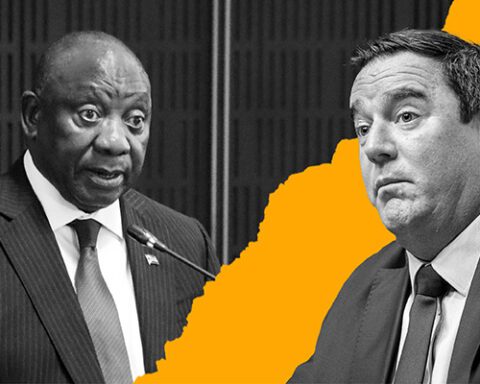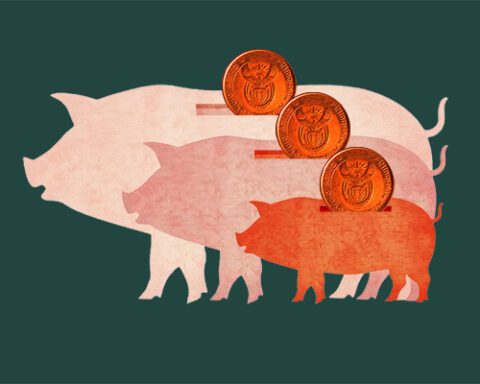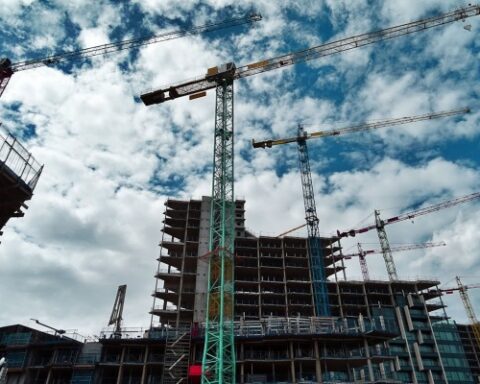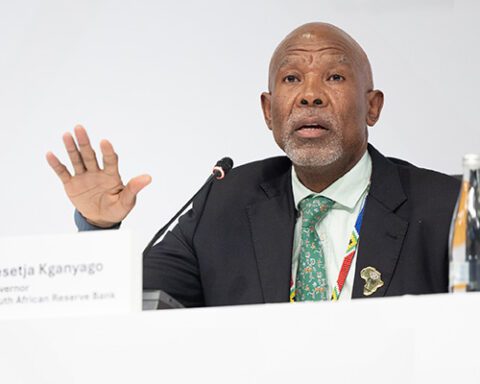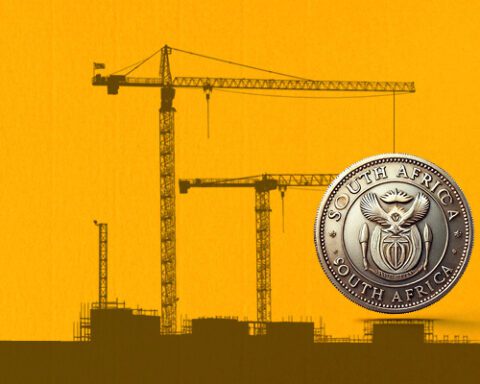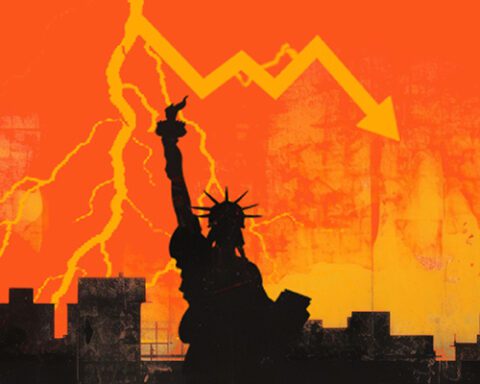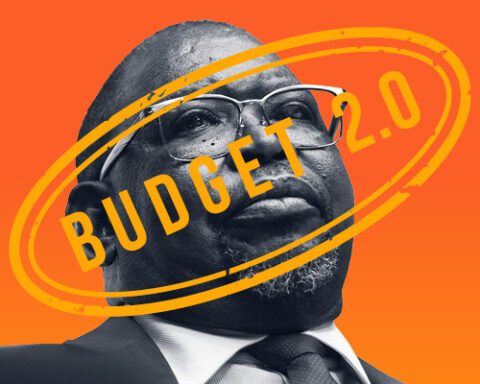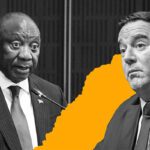Finance minister Enoch Godongwana is set to deliver his annual budget tomorrow, amid a strong attempt to push back on the Treasury’s “tough love” approach for Eskom, Transnet and against consolidation generally. With a heavy social wage and weak growth, this will be Godongwana’s toughest job yet.
In spite of some of the more market-orthodox content of President Cyril Ramaphosa’s state of the nation address two weeks ago, the risk to fiscal discipline remains clear and present. With the country staring down the barrel of a debt-to-GDP ratio approaching 80% within two years, markets are likely to start fretting.
Gondongwana’s conditions for the R254bn bailout of Eskom in the 2023 budget included the proviso that it “must” concession certain of its coal-fired power stations. That has not happened and there is no indication that it will.
A further World Bank pledge of $411m to develop Camden, Hendrina and Grootvlei power stations as public-private partnerships has been replaced with an Eskom proposal to extend the life of the plants to 2030 in spite of the promises made to the country’s Just Energy Transition partners – representatives of which are privately dismayed.
Eskom may be getting on top of blackouts, but it’s clear there is still much wrong with the utility.
For a start, Eskom’s unbundling has been glacially slow. For investors, the topic of establishing an independent transmission system operator, and a set of rules about whose electrons are bought, is a brawl that has yet to even start and it’s already in court.
Last month, the auditor-general delivered a shocking report into governance at Eskom. It described widespread failures, including statements ridden with errors, the “breakdown of controls” and how a “failure to implement consequence management encourages a culture where the disregard for legislation, policies and procedures thrives”. It is not a small irony that in a different kind of organisation the board would have quit over such an audit.
Eskom’s 2023 integrated report went to considerable lengths to describe the “state capture unit” it had set up to get on top of high-level corruption. And yet, chair Mteto Nyathi said in December that Eskom had found “no evidence of mafias at Eskom” – an astonishing thing to say in the light of so much evidence to the contrary, and news this month of yet further widespread corruption in “small” contracts worth less than R1m.
Regardless, those on the left of the ANC are emboldened by Eskom’s improved performance. This is the context to a ham-fisted and sustained PR campaign under way at Transnet. In spite of receiving a guarantee from the Treasury of R47bn in 2023 and posting a loss of R7.3bn in 2024, company CEO Michelle Phillips says it will need another R70bn to “get it up to standard” for a purported concession of lines to the private sector.
ANC bats for a bailout
The timing of Transnet’s media campaign coincided with a strong political statement from the ANC’s economic transformation committee that the party is seeking “something massive” for Transnet in the budget. It is no coincidence that the deputy chair of that ANC committee, Zuko Godlimpi, also happens to be the deputy minister of trade, industry and competition. Transnet, says Godlimpi, is seeking “comprehensive once-off” support from Treasury.
The problem is that, as with Eskom, the Treasury has not been able to enforce its historical conditions at Transnet, including that it must enter into private sector partnerships on the railways and the ports. In last year’s budget speech, Godongwana said: “The roadmap outlines … the introduction of competition and leveraging the financial and technical support of the private sector. In this regard, third-party access to the freight rail network will be introduced by May 2024.”
That has not happened.
In the same budget, Godongwana referred to a private operator that was upgrading Pier Two at the Port of Durban, Africa’s biggest port. However that flagship concession, to International Container Services, is tied up in court after what rival bidder Maersk described as a “litany of errors”. At best, this raises doubts over Transnet’s ability to manage complex contracts. More worryingly, observers question whether Phillips has the political and internal support to execute the Treasury’s plan.
These are the pressures weighing on Godongwana. The Treasury is, of course, aware of how important Transnet is. In its macroeconomic policy review last year, it described “deepening operational crises” and said the country “missed out on an aggregate of around R2-trillion of economic activity between 2011 and 2019 solely because of the weakening performance of Eskom and Transnet”.
Ongoing impunity from Eskom and Transnet around Treasury’s attempts to impose discipline, in spite of their harrowing impact on economic life, is a clear challenge to the credibility of Godongwana’s budget, with implications for debt costs. He will need to show that the Treasury’s conditions are meaningful – but the state companies make it hard for him to do this.
Wednesday’s budget is likely to present some sobering debt numbers, as the social wage, the state wage bill and debt costs drag, while tax receipts slump.
In the hope of calming markets, last year the Treasury promised a discussion paper on a fiscal rule by March. Now there is a vicious political dogfight over whether to release it at all.
There is, of course, a political context to this battle. The ANC, which had to form a grand coalition to retain control after last year’s election, is heading for a drubbing in local government elections next year. It got just 35% of the vote in Gauteng, and since then a debilitating water crisis in Joburg has likely only lowered its support in the economic hub.
The ANC needs to put clear ideological water between itself, its leftist allies, and its liberal coalition partners.
The rubberiness of Godongwana’s arm on Wednesday, and the appearance – or not – of a promised discussion document about a fiscal anchor, risks riling the bond markets. This is not just because it is a measure of the Treasury’s control over the nation’s finances; it is also an indicator of the political balance of power within the ANC.
With a new ANC president due to be elected at the party’s 2027 elective conference, it might be the most important indicator of all.
Sign up to Currency’s weekly newsletters to receive your own bulletin of weekday news and weekend treats. Register here.

